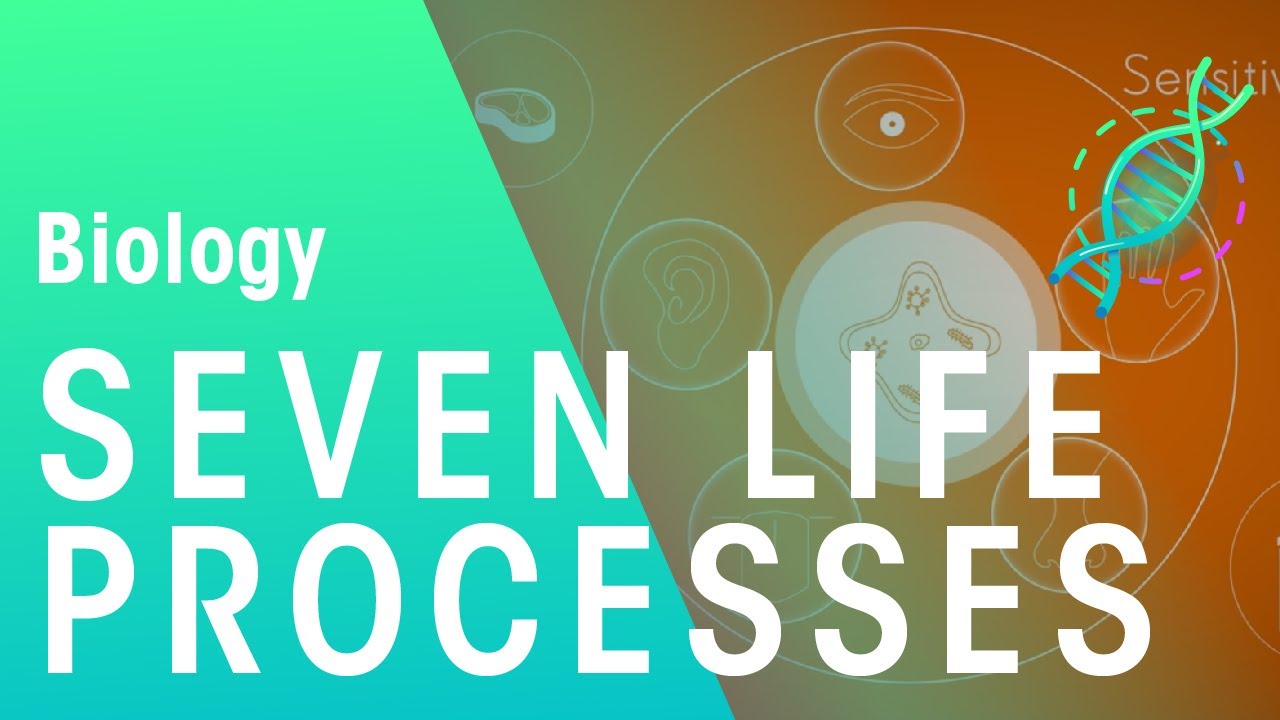look at this fish swimming in the sea or the spurred up a tree. What about a bacteria or even a bumblebee. Don’t worry I wrote mine for the entire video but the amazing diversity of life on planet
Earth is truly staggering they are estimated to be between 5 to 10 million different living species on the earth and that’s excluding all the bacteria as they are really hard to count. So, what do they all have in common what makes something a living thing. Well scientists have found that all living things from the simple little amoeba all the way up to Big Chill giraffe and everything in between can carry out these seven life processes.
The fastest movement some organisms moves very obviously like a cheetah the fastest animal on the planet which can run as 60 miles per hour. Other organisms like plants move much more slowly but all living things do move. The second is respiration. Respiration is a process that occurs in cells to release energy that is stored in food. Organisms have evolved slightly different ways of doing this but all living things need energy to live and this is how they release them. The third is sensitivity in order for a living organism to survive it needs to be able to sense its environment. It could be to find food or shelter or avoid predators. But all living things have evolved at least simple sensors to do this. Humans have the five senses of touch, taste, sight, sound and smell which gives us a very clear understanding of our environment.
The fourth process is growth all organisms grow in basic organisms the cell gets a little bit
bigger. In more complex organisms you get more and more cells. Animals tend to stop growing in adulthood but some plant can continue growing and get very big, in fact the biggest living organism on the planet isn’t a plant it’s a fungus it’s a type of honey fungus growing in Oregon and is thought to be 2.4 miles across. Fifth is reproduction some organisms can reproduce on their own such as bacteria this is called asexual reproduction. Others carry out sexual reproduction using a male and female of the species. Bacteria can reproduce every twenty minutes then African elephant takes 22 months to carry it baby.
Excretion is a sixth process this is not the same as pooing which is actually called a Egestion but excretion means getting rid of waste and chemical reactions in the
organism. Respiration for example makes waste products and each organism needs to get rid of these this is called excretion.
The final process is nutrition every living organism needs some sort of food, plants can make
their own food by the process of photosynthesis but all other organisms have to get their food from somewhere else however the process of obtaining food by either way is called nutrition. So, there you have it the seven life processes you can remember them easily by learning the phrase Mrs. Graham, movement, respiration, sensitivity, growth, reproduction, excretion and nutrition.
SUBSCRIBE to the FuseSchool YouTube channel for many more educational videos. Our teachers and animators come together to make fun & easy-to-understand videos in Chemistry, Biology, Physics, Maths & ICT.
VISIT us at www.fuseschool.org, where all of our videos are carefully organised into topics and specific orders, and to see what else we have on offer. Comment, like and share with other learners. You can both ask and answer questions, and teachers will get back to you.
These videos can be used in a flipped classroom model or as a revision aid.
Find all of our Chemistry videos here:
Find all of our Biology videos here:
Find all of our Maths videos here:
.:
Access a deeper Learning Experience in the FuseSchool platform and app: www.fuseschool.org
Follow us:
Friend us:
This Open Educational Resource is free of charge, under a Creative Commons License: Attribution-NonCommercial CC BY-NC ( View License Deed: ). You are allowed to download the video for nonprofit, educational use. If you would like to modify the video, please contact us: info@fuseschool.org

